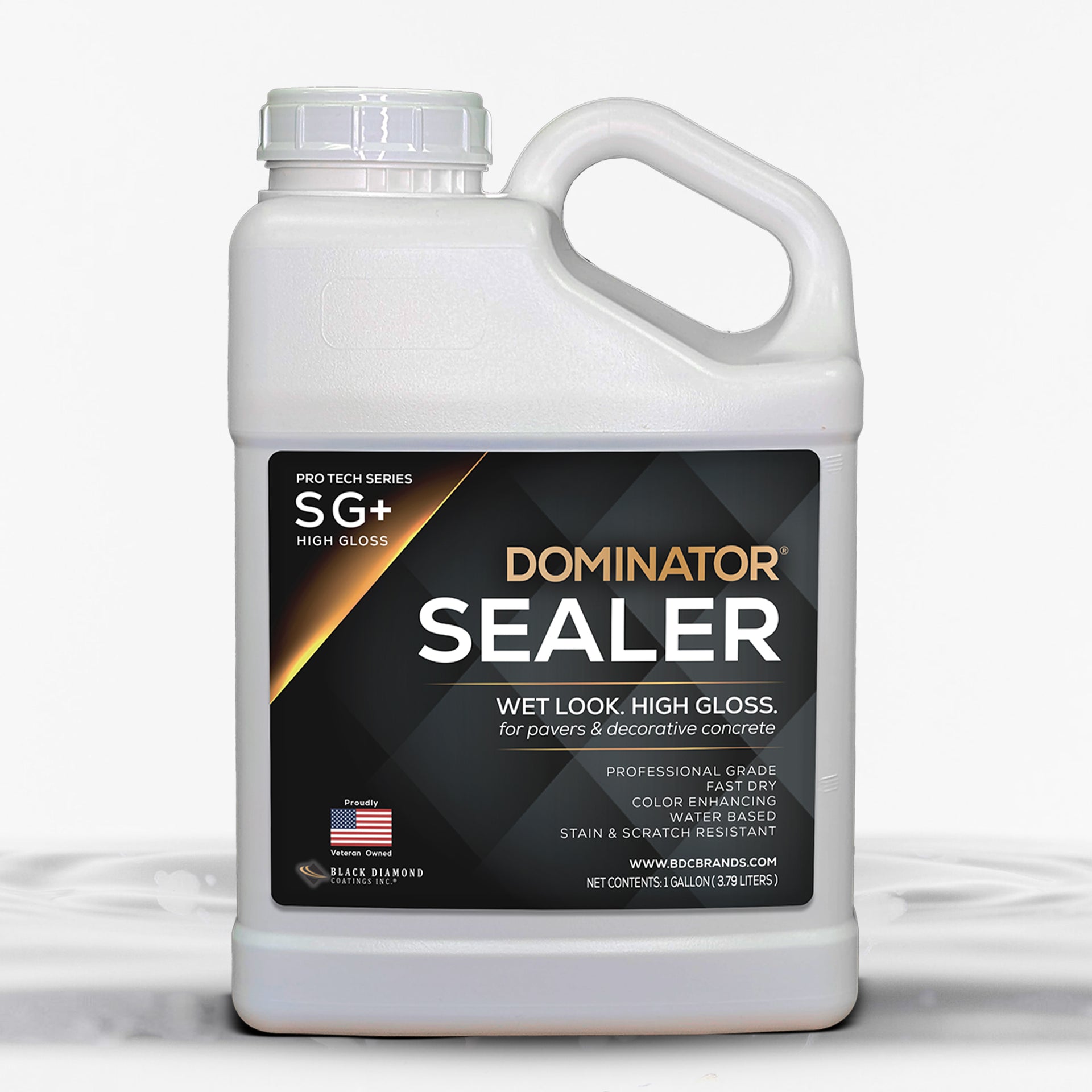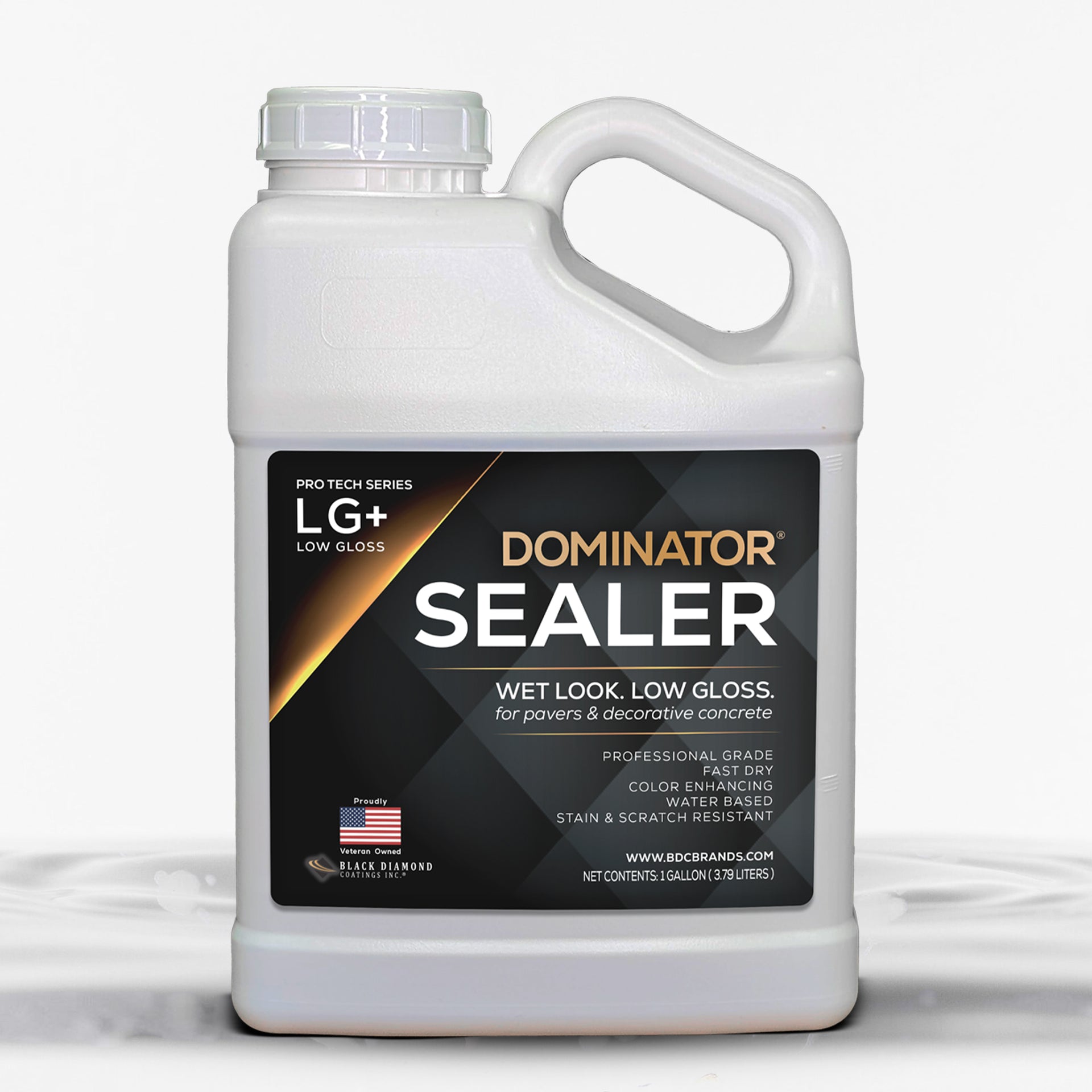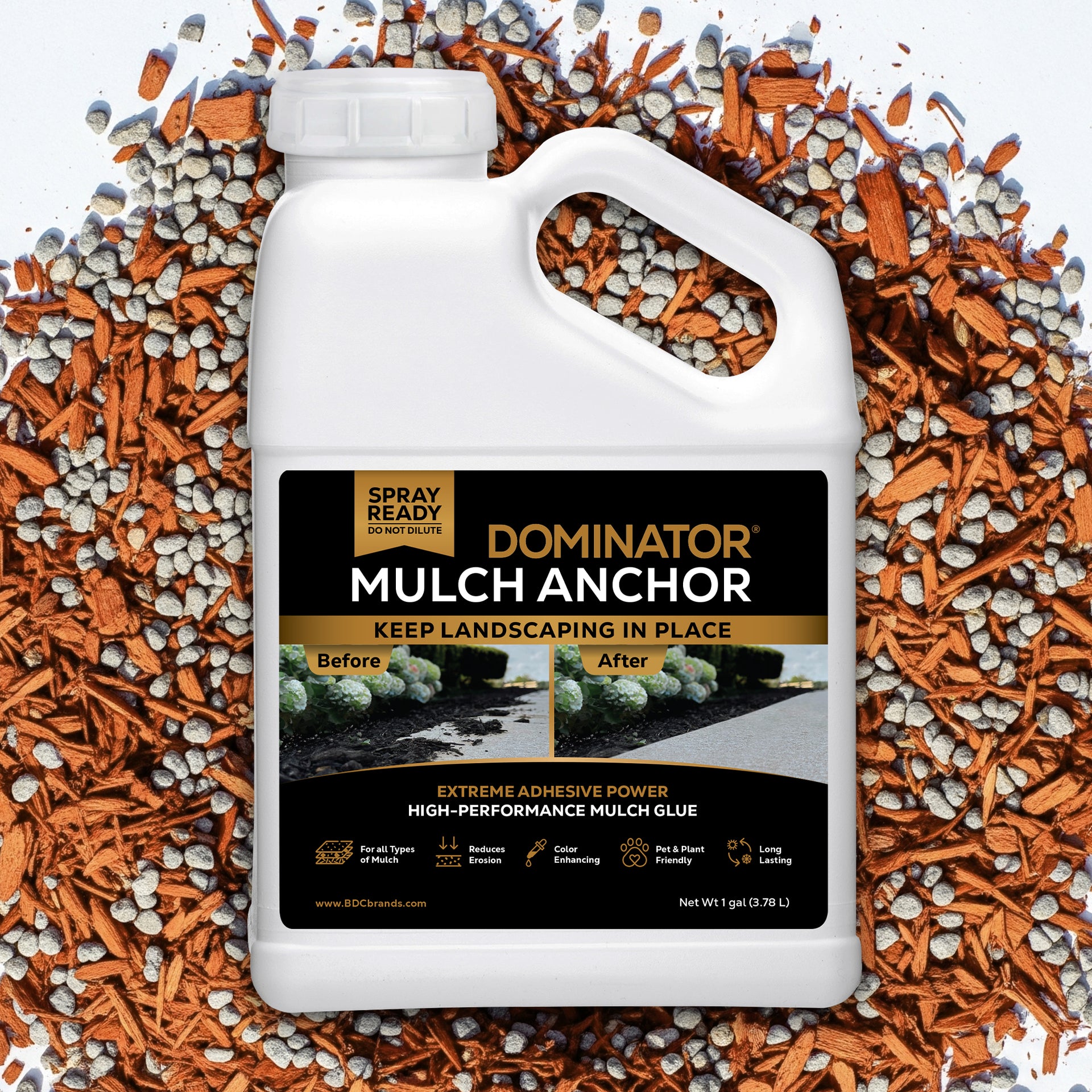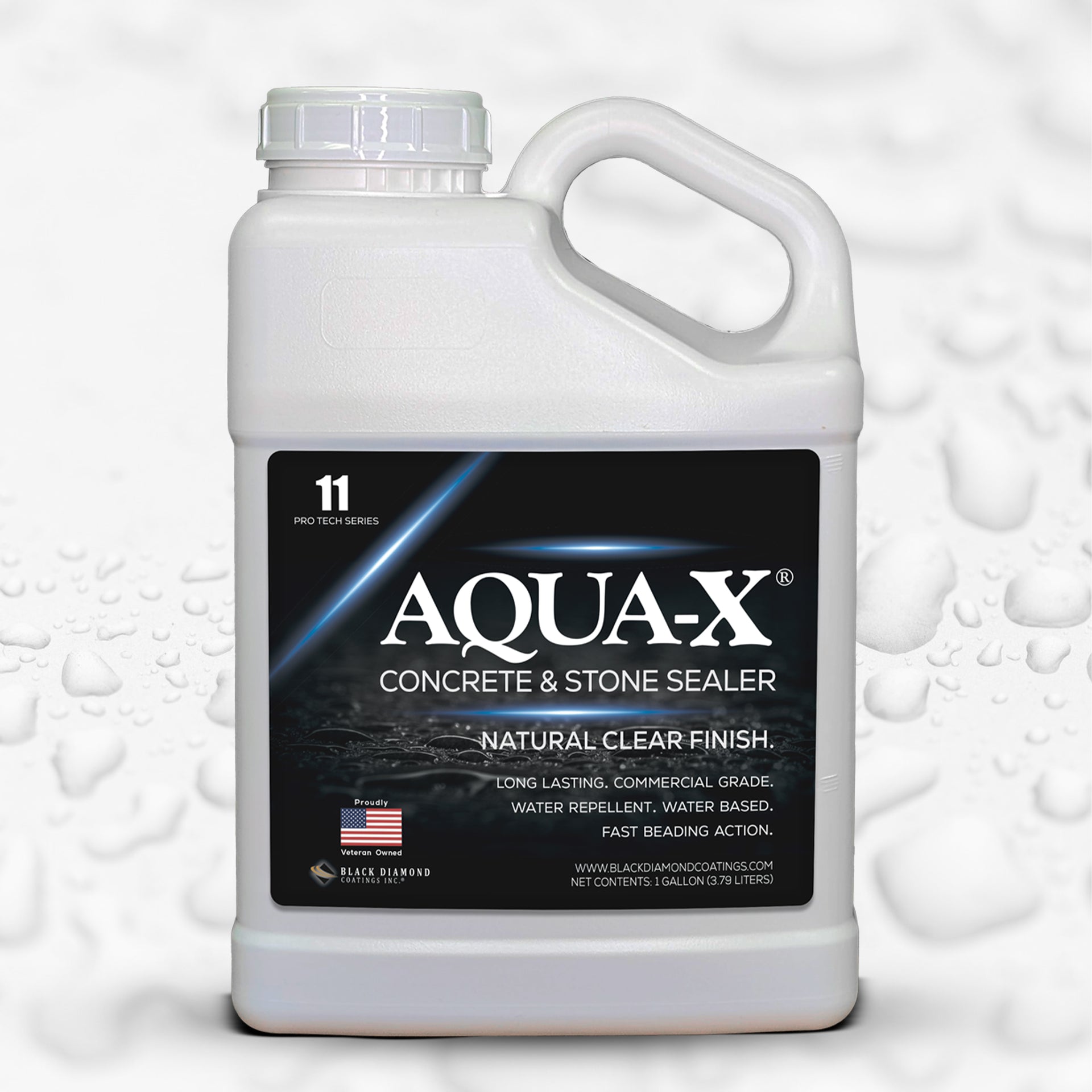
Paver Sealer
What You Need

Sprayer

Tape
Roller

Protective Tape
Extension Pole
Installation Instructions
Coverage Rate
SG+ and LG+: 250-400 square feet per gallon, per coat
Stone + Gloss: 400-800 square feet per gallon, per coat
*Coverage rate depends on the porosity of your surface. Click Here to learn more about testing the porosity of your surface.
To calculate how much sealer you may need for your project click here.
Before You Start
How old are your pavers?
Don’t seal new pavers—wait 30–90 days for them to cure. Sealing too soon can cause pH and efflorescence issues.
pH & Porosity Check:
- If concerned about pH, use a pH strip to test (ideal range: 6–10)
- Do the water test: place a spoonful of water on the paver- If it beads up, it’s been sealed—don’t proceed. Contact support.
Clean Thoroughly:
- Use a pressure washer or degreaser to remove stains.
- For white salt spots (efflorescence), use an efflorescence remover from any hardware store.
- Rinse everything well after cleaning.
🌧️ Weather Check:
Make sure it’s between 50–115°F on the surface. Applying sealer to surfaces that are too hot will result in flash drying and a failed sealer application.
Step 1: Apply
- DO NOT DILUTE- Gently mix the sealer by inverting the bottle a few times to combat natural settling that may have occurred
- Fill a garden sprayer with sealer.
- Spray in even, broad strokes to avoid streaks. A fan tip setting on the sprayer will work best.
**Do not directly pour sealer onto the pavers!! Either use a garden sprayer or a paint roller tray. - Use a paint roller to smooth out any puddles. If the product is pooling on the project surface, use a clean paint roller to backroll the excess product.
- FOR SG+/LG+: Apply 2 coats, about 1 hour apart.
- FOR Stone + Gloss: Apply 1 coat
**If your pH test results are different than the ideal range- please contact support to determine the amount of coats and dry time. It may be helpful to also contact the paver manufacturer to discuss expected cure time for your pavers.
**Note: Wait at least 24 hours before significant foot traffic and 48-72 hours before vehicle traffic
Step 2: CLEAN-UP/MAINTENANCE
Storage & Cleanup
Store leftover sealer in the original container, tightly sealed, in a cool, dry place. Do not let it freeze—frozen product should be thrown away. Clean tools right after use with soap and water. If sealer gets on skin, wash off with soap and water. It may stain clothing.
Disposal
This product isn’t considered hazardous waste. Never burn a sealed container. Follow local rules for safe disposal.
After You Seal
Wipe up oil or fluid spills quickly with a gentle cleaner. Wait at least 45 days before pressure washing. Avoid harsh chemicals like paint thinners or solvents on sealed surfaces.



